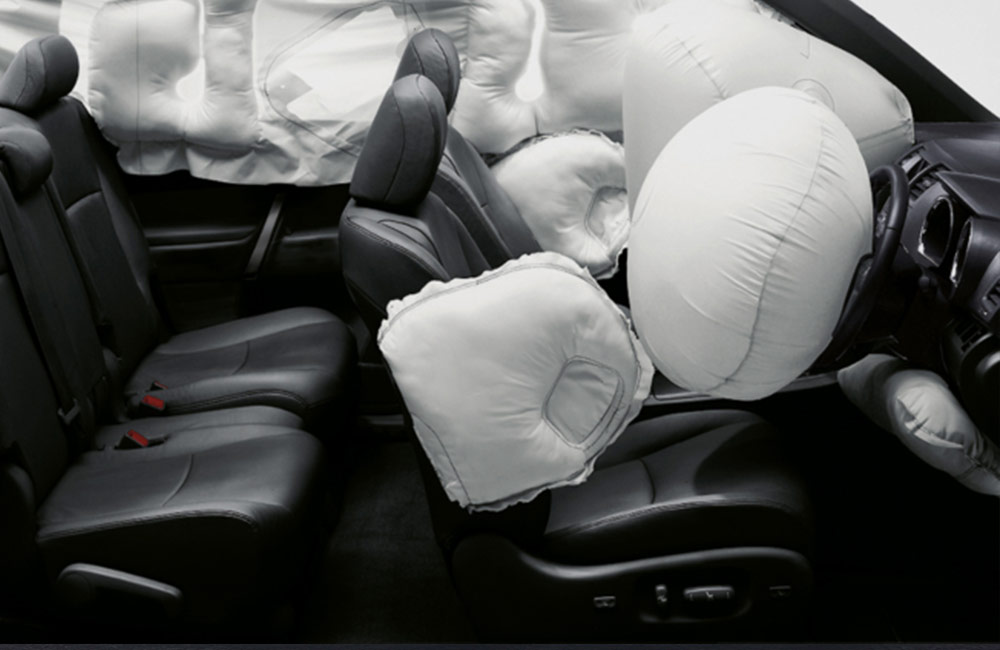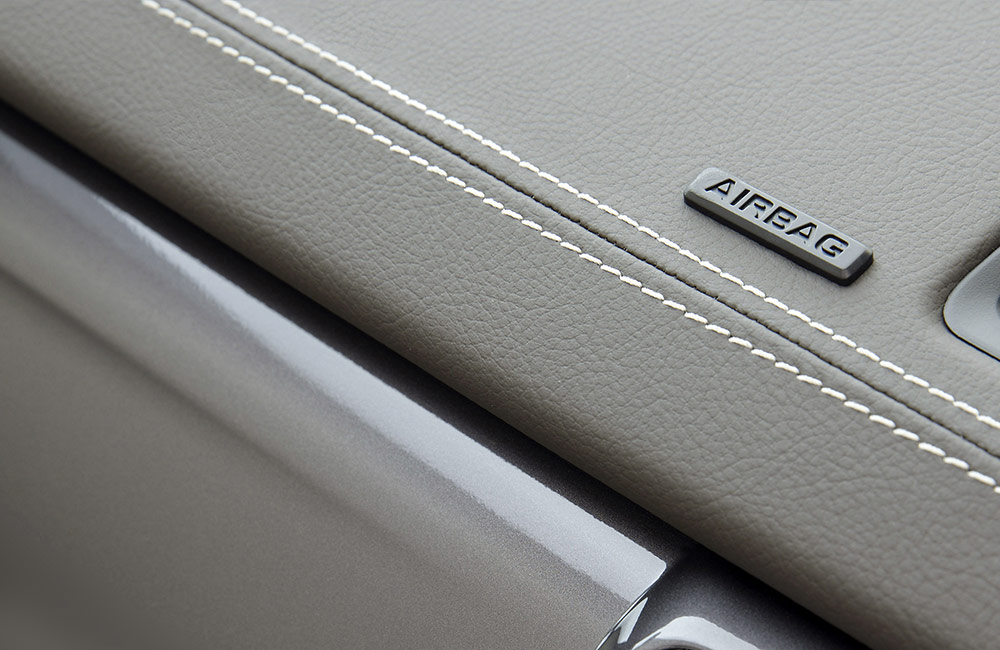Thwarted by limited replacement parts and thousands of unidentified missing vehicles – and now the recent announcement of yet another million airbags – the logistical nightmare could last well into the next decade.
And more recently the number of affected cars in Australia was inflated to four million – up from 2.7 million.
The Takata airbag recall – the biggest single recall in vehicle history – is being dealt with as quickly and efficiently as possible by OEMs who face potentially crippling litigation if the process claims more victims.
Dealers are also caught in the machine. Many have forgone workshop service time to repair faulty airbags and most are part of the process to find missing vehicles and recall them for repair.
In the battle to locate the vehicles that OEMs have yet to find, they are turning to some enterprising Australian businesses that have turned their data mining programs to the task.
CRMA director Jason Fisher said his company has been working with dealers and with two OEMs, one being Honda. CRMA is an acronym for Customer Retention Marketing Australia.
“The process is that the OEM will provide a list of VINs to a dealer of the vehicles they sold and request that they should get in touch with these customers to get the airbags changed,” Mr Fisher said.
“These vehicles go back to 2002 and they could have had three or more owners in that time.
“The next thing that happens, depending on the circumstances the RTA or VicRoads (or the equivalent in each state) also supply another list.
“But what they will say is that these are the vehicles registered in your PMA but there is virtually no contact information. In some cases the RTA gives out the VIN and the address so all you can do is send a letter to them.”
Mr Fisher said his company has started to get the data from the OEM and compare it against all other available data. He said an example could be Dealer A sells the car in 2002, the vehicle is actually registered in Dealer B’s PMA which means that data comes from VicRoads or the RTA but Dealer C is servicing the vehicle.
“So we are getting that data. But Dealer C might have serviced that vehicle last week, last year or five years ago but that is still the most current information that is available,” he said.
“So that is basically where we came to with Honda. Honda had virtually come to a dead end with Brighton Honda, for example, where they had 532 vehicles that they could not find phone numbers for and could not go any further with them.
“We then got that data and sent out 532 smart messages with is a text message that is tracked to see if it has been opened.
“We managed to get 101 recalls completed from that. That is a 22.7 per cent booking rate from data which had come to a dead end.
“We also worked out from that there were 90 phone numbers which had been disconnected. That means that if they are going to sit down and phone people after we have sent that smart message we can tell them there are 90 people where the phone is actually not even connected.”
Mr Fisher said his company can track that information through their phone messaging technology which actually sends out a ping that tells them if the message has been delivered.
“For all intents and purposes it looks like a text message but it is technology that tells us if the message has been opened or not,” he said.
Mr Fisher said the Ferntree Gully PMA had 1032 people who had recalls outstanding.
“We got back 270 of them. These people, we think, received at least four letters from (the OEM) to say ‘you should bring your car in to get the recall done’ and they didn’t respond,” he said.
“We sent out phone messages, again with the tracing, and we found that 117 of those phone numbers were disconnected.
“We can see those who clicked on the message. The smart technology showed that 189 people clicked on the message so it was read, and then 170 activated the message, which meant they contacted a dealer.
“So in the case of Honda and that other manufacturer, there have been cases where they have had six or seven tries at getting a result from the owner.
“The smart tracking shows that if Dealer C has the information about a car, we want that information regardless of where the car was sold or which PMA it was sold from.
“We want to get that person in for the recall.
“Effectively it’s data sharing but we are giving people the option of saying when and where the vehicles have been sold or if it has been written off, all for the purposes of tracking it. We also ask if they know who the new owner is.”
Part of CRMA’s service is its partnership with Tribe Mobile that can trace if a car owner has received a recall message.
“This can be important in the future,” he said.
“If a person has an accident and is hurt by an airbag, for example, they may blame the manufacturer.

“We are able to show that the driver had received a message about the airbag recall and opened that message on a specific time and day.”
The CRMA program is to be extended to five dealers in Tasmania and the Northern Territory with Honda.
“We are working with dealer groups and Honda and the other manufacturer (who is not identified),” Mr Fisher said.
“So we work with Honda and the other manufacturer to get the outstanding VINs and then we get the data from the dealers. The messages don’t come from a dealer, they come from Honda Australia, in the case of Honda vehicles.
“So it doesn’t come from a dealer and that’s done for legal reasons and also because the owner may not want to open any message from a dealer if he’s had a bad experience with that dealer.”
Melbourne-based CRMA has been in business for more than 10 years and started in database marketing, initially with service reminders before expanding to events. It has been undertaking the airbag recalls for up to 50 dealers for about a year.
The concept of finding vehicle data isn’t new to Brisbane-based EvalExpert that primarily works with dealers to provide information that makes valuations more accurate.
EvalExpert director Jaron Crossland said the data available to his company comes from a variety of sources.
“If you give us a registration number or VIN, we then collate all the data you would possibly want to know on that car in order for dealerships to make data-driven decisions on their trades,” he said.
“This means sales and valuation staff don’t ever guess what the car is or if it’s original or what options it has. We pool all that data from various sources and make it available to the dealer within 30 seconds.

“That data also makes it a lot easier to find cars with Takata airbags and the ones needing a replacement.”
Mr Crossland said that on the Motor Trades Association of Queensland (MTAQ) data program that his company built “it will flag if the car has a Takata airbag recall”.
“The data can show if the car has been subject of a recall. But our information is only as good as what has been updated. If it hasn’t been updated then we will flag the car anyway because we don’t know and is a very serious safety issue.”
EvalExpert and Sydney-based Auto Reminder both say that the manufacturers have to keep on top of listing the information.
They said that there were some OEMs that were efficient at updating vehicle data, including ownership, which is a huge help.
“We have over 1000 individual users in Australia and the number of dealer sites is growing by the month,” Mr Crossland said.
“We also work for finance and insurance companies.”
He said the business focus was to pull together all the data as accurately as possible.
“We then publish it for the dealer,” he said.
“Our car evaluation and appraisal app uses the dealer’s mobile phone to take a photo of a trade-in car’s registration plate or VIN and then add photos of the car.

“The data is collated and appraised and then the dealer can make an accurate assessment of the value of the trade. The data on the car can be exported to find bidders and the dealer can then quickly accept the highest bid.”
Auto Reminder director Jeremy Bentvelzen said some brands, for example Mazda, “have done their recalls very well, by requiring dealers to go beyond the regulations and phone all customer to book in for the recalls to be completed”.
“It has put it onto the dealers to contact customers multiple times and that’s probably why Mazda are getting very high recall rates compared with some other brands,” he said.
“We perform customer satisfaction surveys and service bookings for many dealerships across multiple brands and coupled with that we do recall campaigns. Our major focus is on increasing customer retention.
“The list of affected car owners is sourced from the OEM and then we couple that with dealerships’ databases and then from government sources.”
Auto Reminder uses their specialised system that has customer management tools including customer notification required for safety recalls.
“These require three notices – the first two are based on existing customer records, and the third is based on the state vehicle licensing records,” Mr Bentvelzen said.
“The relevant government agencies will supply a list of registered owners based on those missing from existing customer records from the OEM and dealers.
“The problem is that you can’t put this information back into your ERP system because of privacy laws. That is why customer records end up to be incomplete.”
As part of its service to dealers, Auto Reminder provides the calls to customers.
“Recall letters are not as effective as calls directly to the owner booking them in when parts are available” Mr Bentvelzen said.
“News reports create general awareness but (owners) don’t know what to do next, particularly in contacting a dealer who they may not have dealt with for many years. Those who are still with the dealer are generally looked after straight away.”
The Takata airbag issue has been complicated because, Mr Bentvelzen said, parts availability was tight around the world. This compounded the problems associated with finding the customer.
“Brands that are excelling in increasing their success rate are doing things like telephoning people,” he said.
“There is only a requirement with a recall to send three letters. Dealers and OEMs can struggle going beyond sending out three letters and it’s difficult in most cases for them to pay staff to call customers. That’s where our services come in.
“We find owners by matching information held within dealers’ DMS systems with lists provided by the manufacturers and registration information provided by RTA and other agencies.
“On the third round of the recall operation, the information comes from the licensing authorities.”
Mr Fisher from CRMA said he had successes from some manufacturers but was disappointed with some who didn’t want to use new technology to find more owners and he added that he was annoyed with government authorities which have poor records systems.
“We have new technology that allows us to send text messages in nine languages to car owners,” he said.
“But we don’t really want to be paying for this technology if no-one is going to use it and then everyone says that if we supply it then they might pay for it.
“Then we can have accessibility problems with the regulatory authorities who create a database for registration details of cars which can be searched by the owner’s name, the car registration, address and I think for make and model.
“We have cases where we have requested data and it is well out of date and contains lists of cars, some of which were written off up to four years previously.”
By Neil Dowling















 Read More: Related articles
Read More: Related articles

